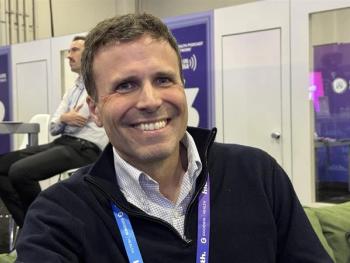
The Barriers to True Healthcare AI
Three experts discuss medicine’s natural impediments to AI during HIMSS 2018.
On first pass, comments from Gurjeet Singh, Andrew Pecora, MD, and Dale Sanders sound like many we’ve heard from skeptics of artificial intelligence (AI) in healthcare. They all listed reasons why it has yet to have an impact, acknowledged its failures, and called for tempered expectations.
But all 3 men were actually among the most optimistic that Healthcare Analytics News™ spoke to during the HIMSS 2018 meeting last week in Las Vegas, Nevada. Singh is CEO of Ayasdi, an enterprise-scale AI company. Sanders is vice president of technology for Health Catalyst, and he repeatedly said he had “great faith” in AI. And Andrew Pecora, MD, is co-founder and executive chairman of Cota, a company that has partnered with IBM Watson Health on value-based care initiatives.
So what are the main barriers to true healthcare AI? According to these 3, they’re the nature of medicine as a science and the state of the healthcare industry. Medicine isn’t as black and white as some sciences, making it harder for machines to try to come to finite conclusions. And even if it were, data are often incomplete, incorrect, or only focused on diseases states rather than patients and their health.
Transcript: The Barriers to True Healthcare AI
Gurjeet Singh: Healthcare and AI have a very weird relationship in general, because AI has had some massive public failures in the recent past.
Andrew Pecora, MD: In the past few years, the medical community is reacting negatively to the term “artificial intelligence,” in large part because biology, unlike physics and chemistry, is still an observational science.
Dale Sanders: We're a long ways away from having true artificial intelligence, in part because we just don't understand the science of patient care and human physiology. It's still a very raw, subjective brand of science.
Gurjeet Singh: I think, given the state of data in healthcare and given the set of incentives in healthcare, shooting for massive changes at a very big scale is probably not the very prudent thing to do.
Dale Sanders: The future of healthcare is a platform of data about patients, about processes of care, about processes of health. It's a platform of data that you can expose to support whatever use case might come along. Right now there's this perception that the electronic healthcare record (EHR) is that platform, and it's just not. It was never designed for that.
Andrew Pecora, MD: Very important information in the EHR is wrong: it's factually incorrect. Things like if a woman has breast cancer—something very simple, that's binary right? It's wrong 40% of the time, so how do you know you're not garbage-in-garbage-out? That could be actually dangerous.
Dale Sanders: We will not be able to fully utilize AI and machine learning in healthcare until we more fully digitize the patient and fully digitize the process of health as opposed to the process of disease.
Andrew Pecora, MD: The idea that you're going to suck in unstructured data, millions and billions of bytes of it, with no reference point, and turn out real-time at-the-point-of-care, without destroying workflow, actual information? Many physicians think that's folly. I think there is still a little bit of this divide, but I think that divide will be solved. I think the people like Watson and IBM and Google and other companies should march full steam ahead, but it's not an easy lift in medicine and in biology and there needs to be that bridge.
Gurjeet Singh: I think it's actually better to focus on small successes and focus on growing out of those successes as opposed to saying we're gonna go fix
X completely, end-to-end. From my perspective, small wins are actually more important, and this is how AI will actually gain acceptance in healthcare: By building on important problems but working with the system that exists, as opposed to throwing it away and starting from scratch. That’s too much.






































